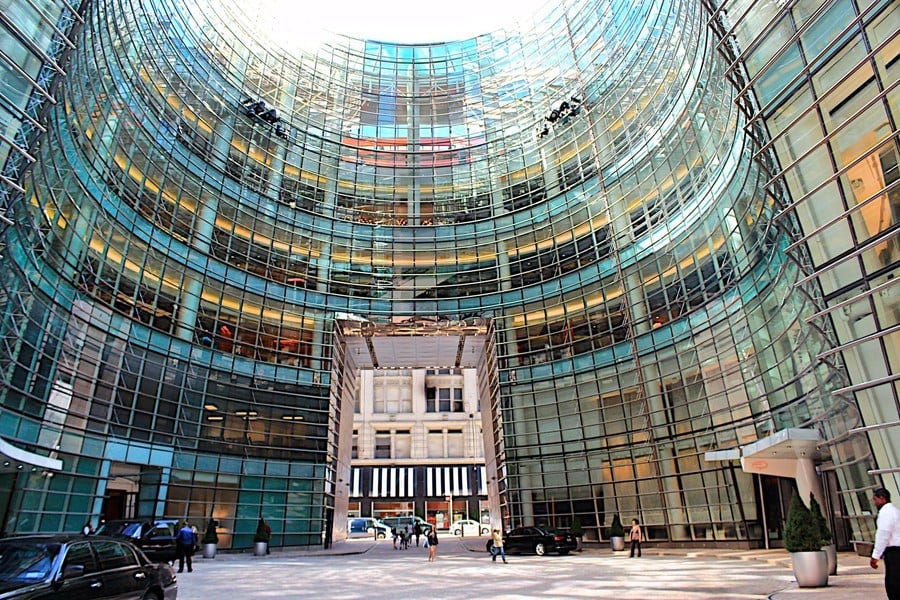I Have Filed Unfair Labor Practice Charges Against Bloomberg
More illegal rules.
I recently acquired a copy of an employment agreement that Bloomberg LP, the financial data and software company most well-known for its Bloomberg Terminals, requires new hires to sign. Yesterday, I filed an unfair labor practice (ULP) charge in the Manhattan office of the NLRB against Bloomberg LP that alleges that three of the rules in the agreement violate Section 8(a)(1) of the National Labor Relations Act (NLRA) under the Stericycle standard established in August of last year.
Confidentiality Rule
The agreement contains a confidentiality rule that forbids employees from disclosing a long list of things that includes “costs,” “assignment and roles of key personnel,” “operational methods,” “other business affairs and methods,” and “other information obtained or learned about in the course of employment with [Bloomberg] that is not readily available to the public.”
The NLRA protects employees' right to communicate about working conditions through channels outside the immediate employee-employer relationship. (Valley Hospital Medical Center, Eastex, Inc. v. NLRB). Accordingly, the NLRB has long held that “employees have a right to discuss among themselves, and with the public, information about their terms and conditions of employment for the purpose of mutual aid and protection.” (Motor City Pawn Brokers). This confidentiality rule is written so broadly that it would reasonably be construed as prohibiting employees from exercising these rights and is therefore presumptively unlawful.
Several Administrative Law Judge (“ALJ”) decisions have found that similar confidentiality rules are coercive under the Stericycle standard. ExxonMobil Global Services Company, JD-15-24, 5-7 (2024); General Motors Components Holdings, LLC, JD-09-24, 12-13 (2024); United Wholesale Mortgage, LLC, JD-04-24, 4-5 (2024); United Electrical Contractors, Inc., JD-74-23, 19-21 (2023).
Customer Non-Solicitation Rule
The employment agreement also contains the following rule regarding solicitations to Bloomberg customers:
For a period of three years from the date Employee’s employment with the Company terminates, will not induce or attempt to induce … any former, present or future client, customer, vendor or other partner of the Company to reduce or discontinue any business relationship or to refrain from entering into any new business relationship with the Company.
The NLRA protects the rights of workers to promote consumer boycotts for the purposes of mutual aid and protection (Ashford TRS Nickel). These rights, like all Section 7 rights, extend to employees and former employees alike (McLaren Macomb). This customer non-solicitation rule would be reasonably read as prohibiting former employees from exercising these rights and is therefore presumptively unlawful.
Coworker Non-Solicitation Rule
The employment agreement also contains the following rule regarding soliciting coworkers to leave for another company:
For a period of three years from the date Employee’s employment with the Company terminates, will not induce or attempt to induce … any officer, employee, agent, consultant or independent contractor of the Company, or of any organization with respect to which the Company has agreed to a similar prohibition and of which the Employee has knowledge, to discontinue such affiliation with the Company or such organization, as the case may be.
The NLRA protects the rights of workers to influence or solicit one another to change employers as part of a broader course of protected activity. This rule would be reasonably read as prohibiting employees from exercising this right — e.g. by concertedly resigning for the purposes of mutual aid and protection and soliciting coworkers to join them — and is therefore presumptively unlawful. (Haynes Mechanical Systems).
I currently have six open cases at the NLRB related to coercive rules. Yet, the fact that these kinds of rules can be challenged under the NLRA still seems to be not very well understood.
For example, earlier this month, the New York Times ran a piece about Miss Teen USA pageant winners who are being silenced by nondisclosure rules in employment agreements that they signed with the pageant. Those rules are almost certainly illegal under Stericycle and those pageant winners should be filing unfair labor practice charges at the NLRB to get out from under them. I’ve reached out to them, but not gotten a response.

